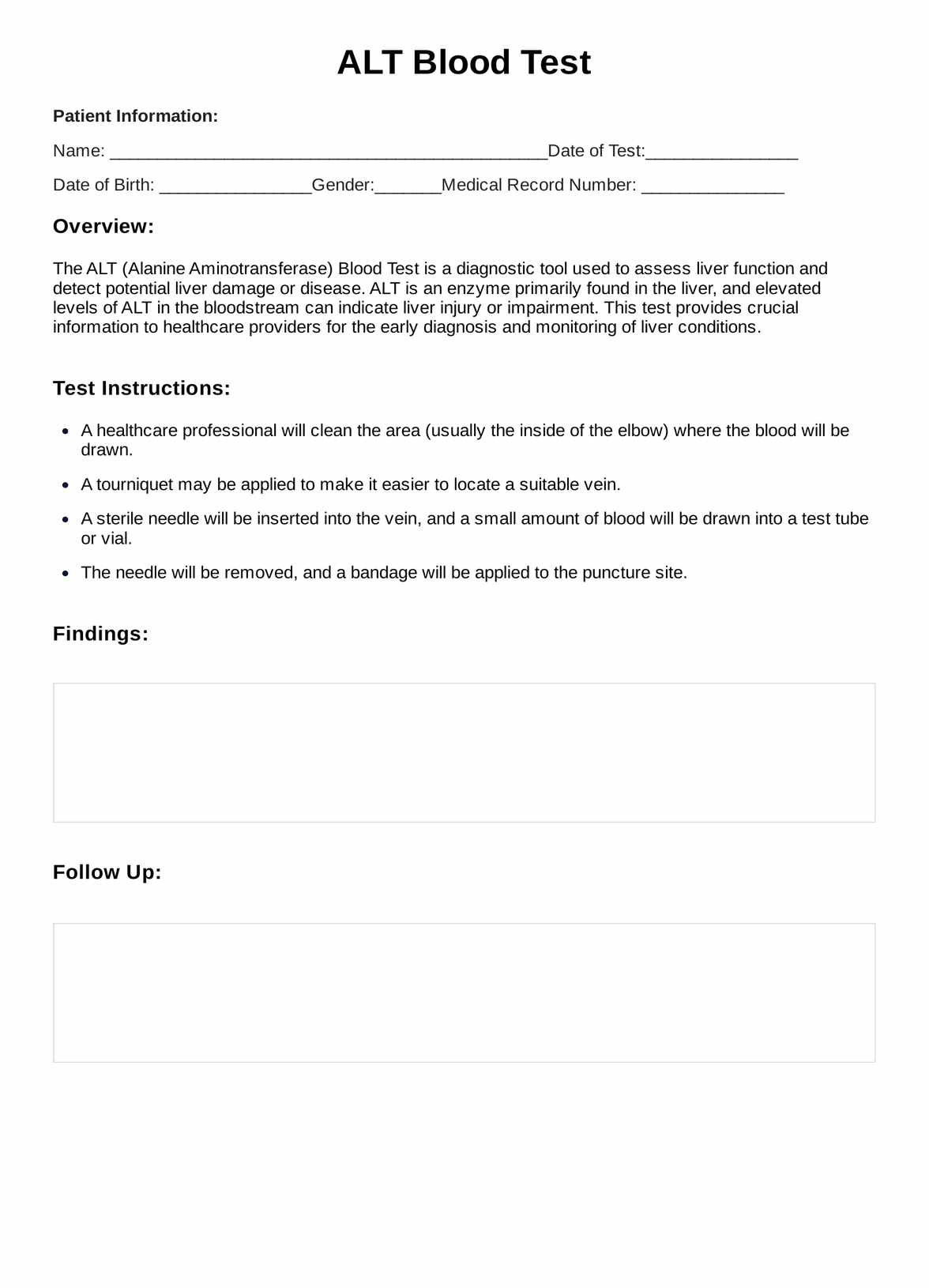Healthcare providers, including general practitioners, hepatologists, and gastroenterologists, typically request ALT Blood Tests.

ALT Blood Test
Discover the ALT Blood Test, including what it is, how it works, when to use it, and interpret results. Free ALT Blood Test example available for download.
Use Template
ALT Blood Test Template
Commonly asked questions
ALT Blood Tests are used to assess liver function, diagnose liver conditions, and monitor the progress of liver diseases and treatments.
The test itself typically takes only a few minutes. However, depending on the laboratory's workload, you may need to wait for the results, which can take a day or two.
EHR and practice management software
Get started for free
*No credit card required
Free
$0/usd
Unlimited clients
Telehealth
1GB of storage
Client portal text
Automated billing and online payments











